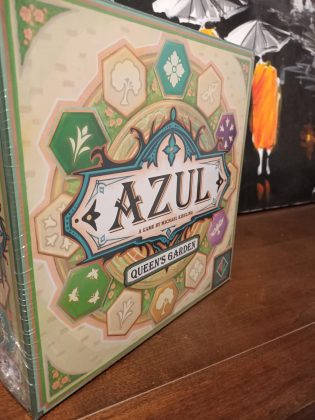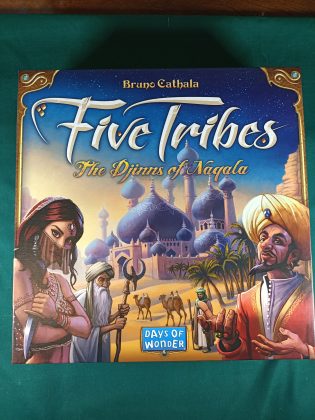Context of the review: This review was written after 3 plays of Tapestry at the 2 player count and 2 plays at the solo player count. The copy of Tapestry was provided by Stonemaier Games at a significant cost reduction to Next Player.
Tapestry, designed by Jamey Stegmaier, came to the scene with massive fan fare and hype. The much vaunted less than 2 hour civilisation game was here and with the Stonemaier production quality. But did it live up to it’s hype? Despite some early criticism on balance I believe that it has, reaching the Top 300 on BGG and a 7.5 rating has to say something, right?
Overview
Tapestry has you starting from nothing and advancing your civilisation through several tracks – Science, Exploration, Military and Technology – with the resources that you gain throughout the game.
You can choose your action each turn – Income or Advancement. Income turns are less frequent and once you have completed five of them it is game over for you but they are necessary for the advancement of your civilisation. The Advancement move is exactly that, pay some resources (gained through income) to gain further advantages, cards or benefits to build on previous turns.
Tapestry also has a wonderful little city that you must build out with sculpted buildings. Acquiring Landmarks (through Advancement) means that you will obtain bigger buildings which will cover more of your land and therefore help gain more points.
Components
Tapestry scores high on looks and component quality. The colours of the pieces, boards and cards are vibrant and the sculpts by Rom Brown are beautiful. But it is one of the smallest things that really matters here – the texture of the boards. This small feature really adds to the quality feel of the game and stops pieces from shifting around too much during play. So from a looks persepective, Tapestry really knocks it out of the park. But..unfortunately this makes for an expensive game, although as you’ll see I believe that the cost is worth it.
The Game
There is something strange and unquantifiable in reviewing games. The factors that go into whether I like a game or not are really subjective and even the most objective reviewer is still bringing a lot of personal beliefs and biases into the work that they do. So I want to say that Tapestry just makes me happy. I think that the main reason of this is it’s simplicity to teach. Given that there is an isolation in place at the moment, my playing group consists of just my wife, often after the kids have gone to bed. So the ability to explain the rules in a few minutes and get playing was one of the best parts of Tapestry.
The ease of play and assymetry was another major bonus. Most of the actions in the game are well described in the rules or on cards, so there is very little rules slowdown even from the very first game. The fact that all of the major civilisations have different powers and the fact that I can go for Income rounds quicker than others also was a major boon. This asymmetry will keep you on your toes and guessing whether the decisions you are making are the right ones at any given time.
The one major drawback for me, and this is more of a personal thing, is that keeping track of each of the Advancement tracks can get a bit draining at times. Where I should be on a track, whether I should be pursuing more than one track at a time is always a big worry for me, and that isn’t helped by the four separate tracks for Tapestry. However, much like Scythe Stegmaier’s other big game, I expect that time will tell and I will learn how to play each of the factions and what they are best at.
Overall, Tapestry is a delight to play. It really scratches an itch that I don’t often find in games, in that it offers enough strategy without the massive rules over head.
But what about the…
Stegmaier, it could be argued, is the Godfather of current boardgame marketing. Unfortunately, this means that his offerings are often met with more criticism due to higher expectations. One of these is that a Civilisation game was promised, but that Tapestry isn’t technically a civilisation game. To that I have to ask what is the actual definition of a civilisation game? I have to admit that I am ignorant to Civ games and that I haven’t really played any, but if you told me that Tapestry was one it would meet my expectations. I start with virtually nothing, build a physical city, advance my civilisations capabilities and then upgrade those abilities, maybe my ignorance is showing but that is what I would call a Civilisation game on face value.
The Balance issues..to me a non event. I love having a card or combination that messes with the other people at the table, or throw a spanner in the works. But I’m not all about having the win or even fairness, I’m there just to enjoy the experience. On top of this Stonemaier have already released a balancing sheet for the game to enure that there isn’t any real runaway leaders, something that they have also done for Scythe.
Last Word
Tapestry is a joy to play, it’s easy to teach and has incredible replayability from the base box with assymetric factions to explore. If you get a chance to get this one to a table, definitely do.




